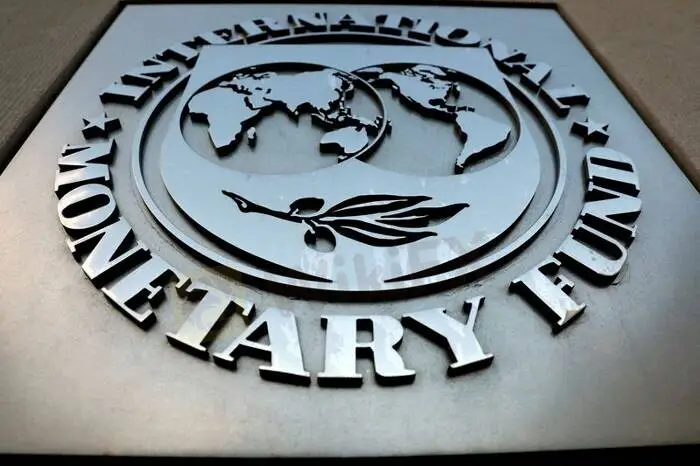简体中文
繁體中文
English
Pусский
日本語
ภาษาไทย
Tiếng Việt
Bahasa Indonesia
Español
हिन्दी
Filippiiniläinen
Français
Deutsch
Português
Türkçe
한국어
العربية
IMF urges Japan to scale back pandemic support, raise taxes in long run
Abstract:The International Monetary Fund urged Japan on Friday to scale back emergency pandemic support, and consider raising taxes on property and capital income once the economys recovery from the coronavirus pandemic-induced doldrums is firmly in place.

While authorities must keep supporting households most hard hit by the COVID-19 crisis, they should continue scaling down pandemic-relief measures as the economy recovers, the IMF said.
“Looking ahead, given the large uncertainty surrounding the pandemic, fiscal policy should be nimble and flexible, adjusting the scale and the composition of support in response to epidemiological and economic developments,” the IMF said after a routine monitoring of the economy, known as its Article 4 process.
Japans economic recovery is likely to strengthen this year, though the balance of risks is tilted to the downside, it said.
Once the recovery is firmly in place, Japan must resume efforts to rein in its huge debt such as by cutting ballooning medical costs for a rapidly ageing population, it said.
Raising the consumption tax rate from the current 10%, as well as hiking property and capital income taxes, could also be among options, the IMF said.
“In the past there has been a lot of focus on the consumption tax,” said Odd Per Brekk, deputy director of the IMFs Asia and Pacific Department.
“What is needed is a broader package of government spending and revenue measures” that could include a consumption tax hike, he told Reuters in an interview on Thursday.
On monetary policy, the IMF urged the Bank of Japan to maintain its massive stimulus programme and stand ready to cut interest rates if inflation momentum remains weak.
In its updated World Economic Outlook, the IMF projected Japan‘s economic growth would accelerate to 3.3% this year from last year’s 1.6% increase thanks to the boost from government stimulus measures and easing global supply constraints.
While price momentum will pick up further on higher import costs and robust domestic demand, inflation will remain below the BOJs 2% target in the medium term, the IMF said.
The market impact of the U.S. Federal Reserve‘s expected policy tightening was among risks to Japan’s outlook, Ranil Salgado, the IMFs Japan mission chief, told a briefing on Friday.
“Youll likely to see wider interest rate differentials between the U.S. and Japan, which could put downward pressure on yen,” Salgado said.
But heightened market volatility could have the reverse effect of pushing up the yen if investors hoard the currency as a safe haven against risk, he added. “Those are risks, something to watch.”

Disclaimer:
The views in this article only represent the author's personal views, and do not constitute investment advice on this platform. This platform does not guarantee the accuracy, completeness and timeliness of the information in the article, and will not be liable for any loss caused by the use of or reliance on the information in the article.
Read more

Blockchain Decentralization: Empowering a Trustless Future
In recent years, blockchain technology has rapidly evolved from a niche innovation behind Bitcoin into a transformative force across industries. At its core, blockchain decentralization refers to the distribution of authority and decision-making away from a central entity and into the hands of a distributed network of participants. This shift redefines how data is stored and verified and paves the way for trustless, transparent, and resilient systems that challenge traditional centralized models.

The president of @Liberland, @Vít Jedlička come on stage, dialogue on trading security.
The 2025 WikiEXPO Hong Kong Station is about to grandly open. the president of @Liberland, @Vít Jedlička come on stage, dialogue on trading security.

Countdown: 1 day.WikiEXPO2025's first stop, Hong Kong, is about to open.
⏰ Countdown: 1 day. WikiEXPO2025's first stop, Hong Kong, is just tomorrow. Focus on transaction security and explore new investment opportunities. ???? Get ready to start now. See you tomorrow.
JustMarkets Review 2025: Live & Demo Accounts, Withdrawal to Explore
Established in 2012, JustMarkets (Formerly JustForex) is an online forex broker based in Cyprus and serves clients in over 160 countries. Featuring a low entry barrier, a 50% deposit bonus, and robust trading platforms -MT4 and MT5, JustMarkets has gained great popularity among retail investors in recent years. JustMarkets allows traders to trade over 260 CFD-based instruments, which is not an extensive range, yet on leverage up to 3000:1 to increase trading flexibility. To enhance the trading experience, both MT4 and MT5 are provided, along with JustMarkets Trading App, MetaTrader Mobile App, and MetaTrader WebTerminal. JustMarkets offers a 50% deposit bonus to boost traders' confidence. Opening an account is a fully online process, typically completed within one day.
WikiFX Broker
Latest News
The Withdrawal Trap: How Scam Brokers Lure Victims into Paying More
FCA to Investors: Think Twice Before Trusting These Brokers
Trump\s tariffs: How could they affect the UK and your money
Trump gambles it all on global tariffs he\s wanted for decades
TradingView Brings Live Market Charts to Telegram Users with New Mini App
Trump tariffs: How will India navigate a world on the brink of a trade war?
Interactive Brokers Launches Forecast Contracts in Canada for Market Predictions
Authorities Alert: MAS Impersonation Scam Hits Singapore
Stocks fall again as Trump tariff jitters continue
IG Group Acquires Freetrade for £160M to Expand UK Investment Market
Currency Calculator







